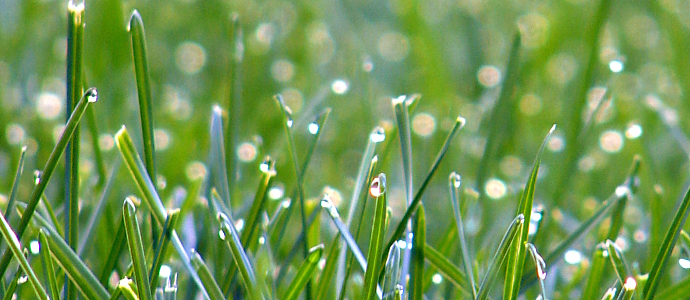What Types of Grass Thrive in the Philadelphia Climate?
The best grasses for growth in Philadelphia are generally cool season grasses like Kentucky Bluegrass, Fescues, and Ryegrasses, but there is one warm season grass that fairs very well in Philadelphia – Zoysia.
Wondering what types of grass thrive in the Philadelphia climate? Whether your yard is your baby or you’re competing with your neighbor for the greenest grass, we’ve got your back with the best grasses for the Philadelphia weather.
Since our beloved Philadelphia has relatively unpredictable weather – hot, muggy summers and winters that alternate between mild, reasonable, and ridiculous – the question of thriving grass is difficult to answer.
As a city that is just outside the edge of the humid sub-tropical zone that spreads from the South to the southern end of Pennsylvania, we have a healthy rate of precipitation. This reasonably wet and hardy climate means that we have healthy growing seasons, but we need grasses that can thrive in both hot summers and cold winters.
The best grasses for growth in Philadelphia are generally cool season grasses like Kentucky Bluegrass, Fescues, and Ryegrasses, but there is one warm season grass that fairs very well in Philadelphia – Zoysia.
Zoysia
Zoysia is the only warm weather grass that grows well in our climate. It is suited to Philadelphia homeowners who have yards that are mostly sunny or get full sun. It is popular with those who enjoy extremely dense grass that is pleasant to the touch.
Kentucky Bluegrass
Kentucky Bluegrass is perfect for Philadelphia homeowners who have homes in wet, sunny locations. Bluegrass has shallow roots, which makes it an unlikely grass in areas that prone to drought. But here in Philadelphia, we have predictable precipitation year round (ranging from 8-12 wet days per month), which makes Bluegrass a healthy choice. As this type of grass becomes dormant in hot and dry and in cold weather, it is best when planted in the spring or fall and works well in grass seed blends.
Fescues
A wide variety of Fescues work extremely well in our Philadelphia climate. Their fine blades, low maintenance, and nice texture makes them popular among homeowners, as does their hardy disposition. Fescues can survive even extremely cold winters and can stand up to hot, muggy summers. They thrive in semi-shady or shady areas, and they can be easily combined with other cool climate grasses.
Ryegrass
Ryegrasses are one of the most common types of grasses used in Philadelphia grass blends. It grows extremely quickly from seed and can be mixed with Bluegrass and Fescues to form a uniform, quick-growing lawn.
Mixes
To help keep Philadelphia lawns green throughout our wet springs, dry summers, and cool falls, many homeowners choose a mixture of seeds, which can help fill out a lawn. While some grass types turn dormant in the hot summer (like Bluegrass) others remain verdant (like Fescues). This means your grass can remain green, as different grasses become active at different points throughout the season.
If you decide on a mixture of grasses that thrive in the Philadelphia climate, you can choose to mix the seeds yourself or buy specialty formulated mixes.
Which Grass Is Right for Me?
When deciding which grass is right for your Philadelphia backyard, you need to assess how much direct sunlight your yard receives, what texture of grass you prefer, and – as some grasses are more high maintenance – what type of effort you are willing to make.
[cf]skyword_tracking_tag[/cf]





2 Comments
What Types of Grass Thrive in the Philadelphia Climate? | Earl Forbes Blog
July 14, 2013[…] Zoysia is the only warm weather grass that grows well in our climate. It is suited to Philadelphia homeowners who have yards that are mostly sunny or get full sun. It is popular with those who enjoy …read more […]
donna
September 24, 2014Is there testing available to aid in determining what grass mix you want or need, and in general what is more likely to grow?